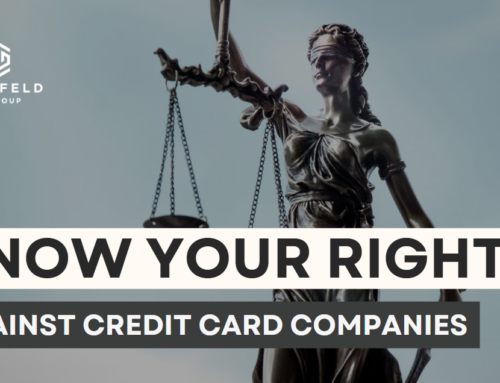Emerging from the shadows of debt can be an exhilarating journey, and for many, it’s made possible through debt settlement programs. These programs provide a lifeline to those burdened by financial stress, offering a pathway to a brighter, debt-free future. However, what happens when the debt settlement program comes to an end? What’s the next step in your financial journey?
In this blog, we’ll explore how debt settlement can be a game-changer and guide you through creating a post-settlement financial wellness plan. It’s time to take control of your financial destiny and build a stable and prosperous tomorrow.

Understanding Financial Wellness
Financial wellness refers to an individual’s capacity to effectively manage both their present financial obligations and future financial goals. It’s a holistic assessment of one’s financial health, acknowledging the significant influence of finances on overall well-being. In many ways, financial wellness parallels the importance of physical fitness and mental health, as it plays a pivotal role in shaping our lives.
Why Financial Wellness Matters
Financial wellness is pivotal because it extends far beyond monetary concerns. It has a profound impact on our overall health and quality of life. Here are some key aspects that highlight the significance of financial wellness:
- Meeting Daily Expenses:
Financial wellness begins with the ability to cover day-to-day expenses without undue strain. It’s about having the financial capacity to handle routine bills and necessities without constant worry.
- Living Within Means:
One of the cornerstones of financial wellness is the practice of living within one’s financial means. This means aligning your expenses with your income, promoting financial stability and reducing stress.
- Emergency Preparedness:
Financial wellness also entails having a financial safety net in place, ensuring that unexpected events or emergencies don’t derail your financial progress. It provides a sense of security and peace of mind.
- Pursuing Future Goals:
Achieving financial wellness means staying on course to meet your long-term financial objectives, such as savings and retirement goals. It’s about planning for a secure and fulfilling future.
- Managing Debt Effectively:
An integral aspect of financial wellness is having a strategy to manage and reduce debt. Whether through debt consolidation, settlement, or other methods, tackling debt ensures you’re on the path to becoming debt-free.
The Post-Debt Settlement Financial Wellness Plan
For us at Gershfeld Law Group, the ultimate goal is reaching a point where your financial stability and future aspirations remain unshaken by unforeseen, substantial expenses that life may present.
So, in practical terms, what steps can you take to enhance your financial wellness? Here’s where you can begin.
- Get Your Financial House in Order
Before embarking on your journey towards post-debt financial wellness, it’s crucial to organize your finances. Start by simplifying your financial responsibilities through automation. Set up automatic payments for recurring bills like your phone, electricity, and credit cards to ensure you never miss a due date. You can even automate contributions to your retirement and emergency savings accounts, making saving effortless.
It’s also an excellent time to declutter your financial paperwork. Review your documents and shred outdated bills and records, keeping only the latest account statements and insurance policies. However, don’t toss your tax returns; they should be retained for at least three to seven years.
- Rebuild Your Emergency Fund
Having a robust emergency fund is essential, but it’s often overlooked when focusing on debt repayment. Now that you’re debt-free, prioritize rebuilding this financial safety net. A solid emergency fund should cover at least three to six months of living expenses. If you haven’t already, open a dedicated savings account for unexpected costs. A well-funded emergency fund ensures you’re financially prepared for life’s curveballs and reduces the risk of falling back into debt.
- Continue to Budget Wisely
After diligently adhering to a budget during your debt repayment journey, you may find yourself with surplus income. While it’s tempting to loosen the reins on your spending, remember that abandoning budgeting altogether can lead to financial setbacks. With your financial landscape changed, revisit and adjust your budget to align with your new financial situation. Identify areas where you can cut expenses and make the most of your increased financial flexibility.
- Invest in Your Future
The sooner you start saving for retirement, the better, but it’s never too late. Explore retirement savings options, such as employer-sponsored plans or Roth IRAs. Self-employed individuals can consider SEP IRAs, Simple IRAs, or individual 401(k)s. The key is consistency; make regular contributions to your retirement accounts. If your employer offers matching contributions, take full advantage. Remember, your retirement savings should remain untouched until you reach retirement age to avoid tax penalties.
- Save for Big Goals
If the motivation to save for significant purchases like a home or car drove you to tackle your debt, you’re closer to realizing those dreams. Create a dedicated savings account for your goals and begin contributing regularly. You’ll be amazed at how quickly your savings grow. If you’re a first-time homebuyer or exploring car financing, consider seeking guidance from financial experts like Gershfeld Law Group to navigate the process.
- Review and Enhance Your Insurance Coverage
While paying off debt, you might have carried minimal insurance coverage. Now, with improved financial stability, it’s a suitable time to reevaluate your insurance needs. Consider increasing coverage, such as life insurance or long-term care insurance, depending on your age and circumstances. Adequate insurance provides added financial security.
- Refresh Your Financial Plan
With a changed income and debt-free status, it’s essential to refresh your financial plan. Evaluate your financial goals, particularly your short-term objectives. If you’ve met or made progress toward them, adjust them to align with your current financial standing. Your financial plan must evolve with your changing circumstances to remain effective.
- Explore Investment Opportunities
With your debt behind you and a solid emergency fund, explore investment options to grow your wealth. Diversify your investments with financial products such as stocks, bonds, or mutual funds, which offer higher earning potential but come with higher risk. If you’re new to investing, consider consulting a financial planner.
Your Financial Wellness
In this journey towards financial wellness, remember that securing your financial future isn’t about navigating unexpected costs with anxiety, but rather with confidence and preparedness. By implementing these practical steps, you can fortify your financial foundation and ensure that your dreams and goals remain within reach, regardless of life’s unpredictable twists and turns.
If you’re currently grappling with debt, don’t hesitate to reach out to experts like Gershfeld Law Group. They specialize in debt settlement and can provide valuable assistance in negotiating with creditors, helping you take that important first step towards a debt-free and financially secure future. Your path to enduring financial stability starts here, and it’s a path well worth treading.






